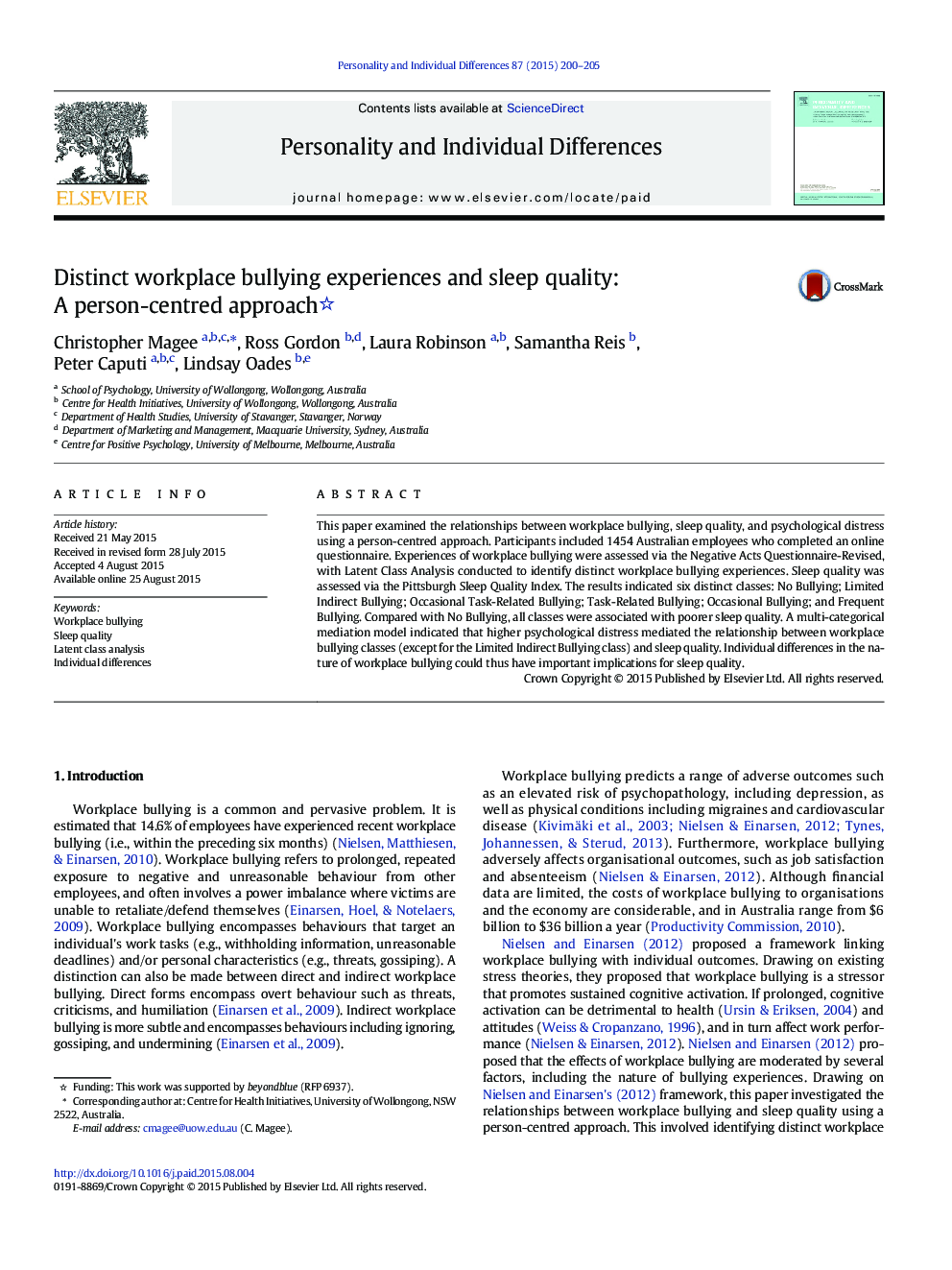| Article ID | Journal | Published Year | Pages | File Type |
|---|---|---|---|---|
| 7251010 | Personality and Individual Differences | 2015 | 6 Pages |
Abstract
This paper examined the relationships between workplace bullying, sleep quality, and psychological distress using a person-centred approach. Participants included 1454 Australian employees who completed an online questionnaire. Experiences of workplace bullying were assessed via the Negative Acts Questionnaire-Revised, with Latent Class Analysis conducted to identify distinct workplace bullying experiences. Sleep quality was assessed via the Pittsburgh Sleep Quality Index. The results indicated six distinct classes: No Bullying; Limited Indirect Bullying; Occasional Task-Related Bullying; Task-Related Bullying; Occasional Bullying; and Frequent Bullying. Compared with No Bullying, all classes were associated with poorer sleep quality. A multi-categorical mediation model indicated that higher psychological distress mediated the relationship between workplace bullying classes (except for the Limited Indirect Bullying class) and sleep quality. Individual differences in the nature of workplace bullying could thus have important implications for sleep quality.
Related Topics
Life Sciences
Neuroscience
Behavioral Neuroscience
Authors
Christopher Magee, Ross Gordon, Laura Robinson, Samantha Reis, Peter Caputi, Lindsay Oades,
